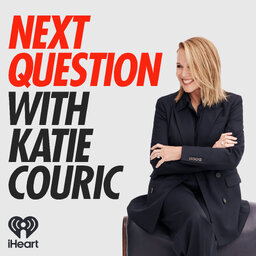Luvvie Ajayi Jones on how to tap into your professional troublemaker and do better
Luvvie Ajayi Jones is a writer, speaker and author of two New York Times best-selling books, “I’m Judging You: The Do-Better Manual” and her latest, “Professional Troublemaker: The Fear-Fighting Manual.” Luvvie’s books are part memoir, part manifestos that, like Luvvie herself, try to help the rest of us do better — for ourselves and for the people around us. On this episode of Next Question with Katie Couric, Katie gives herself over to Luvvie’s wisdom and learns how to overcome confidence barriers, use fear for good, shed that pleaser instinct, embrace the brag, and loan courage whenever possible. Get your pad and pen, because your Luvvie lesson starts now!
Learn more about the episode:
Buy the “I’m Judging You: The Do-Better Manual”
Buy “Professional Troublemaker: The Fear-Fighter Manual”
Watch Luvvie’s 2017 Ted Talk, “Get comfortable with being uncomfortable”
Learn more about your ad-choices at https://www.iheartpodcastnetwork.com
 Next Question with Katie Couric
Next Question with Katie Couric


